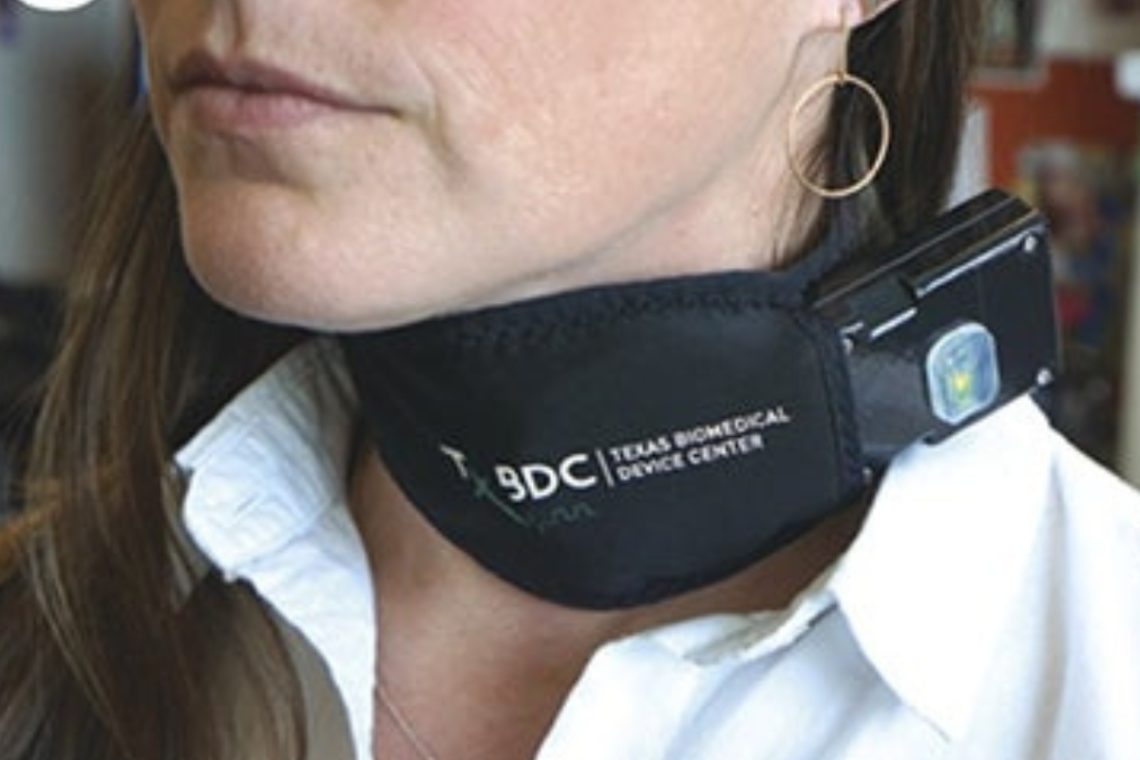If you told someone a decade ago that zapping your neck with mild electricity could rejigger your trauma-riddled brain, you’d probably assume they were a dog trainer looking to scale up. But now, thanks to neuroscientists in Texas, that sci-fi scenario might be a reality.
Researchers from the University of Texas at Dallas and Baylor College of Medicine have created a device that wraps around your neck to gently stimulate your vagus nerve. That’s a nerve that runs along the left side of your neck that acts as a catch-all neural highway. It helps regulate everything from your heartbeat to your mood.
Just as the scientific and medical communities have zeroed in on your gut microbiome as a vastly important part of your physical and mental well-being, researchers are now focusing with laserlike precision on the importance of the vagus nerve.
Whether it turns out to be just a fad or an actual key to unlocking a variety of treatments for a variety of ailments remains to be seen.
Does This Shock Collar Really Help Treat PTSD?
In the meantime, researchers are developing devices like the one made by the researchers at the University of Texas that emit a series of small electrical impulses into the vagus nerve in the hope of rewiring trauma responses.
Vagus Nerve Stimulation, or VNS, has been around for a while. It’s used to treat epilepsy, depression, and even insomnia. What is new is pairing VNS with good old-fashioned Prolonged Exposure Therapy, or PET, which is exactly what it sounds like—long exposure to the things that terrify you most in life so you get so used to them that they don’t scare you anymore.
In the study, nine PTSD patients underwent 12 sessions of this VNS/PET combo. Six months later, none of them had PTSD anymore. According to UT Dallas professor Michael Kilgard, this kind of across-the-board success just doesn’t happen in trauma therapy.
Currently, even our best PTSD treatments only knock out the diagnosis in about 40 percent of patients. And that’s if they don’t drop out midway through. This VNS-enhanced therapy might not only increase the success rate but also offer a lifeline to people for whom traditional therapy isn’t enough.
The treatment is still in its early days. And there are still tons of testing ahead of it before it can become regularly prescribed to patients who need it. The study was working with a sample size that was not terribly significant, so no one is popping champagne yet declaring it a miracle cure for depression and PTSD.
But if these results hold up in larger trials, we may be on the verge of a new era of drug-free PTSD treatment.
The post This Shock Collar Might Be The Future of PTSD Treatment appeared first on VICE.




